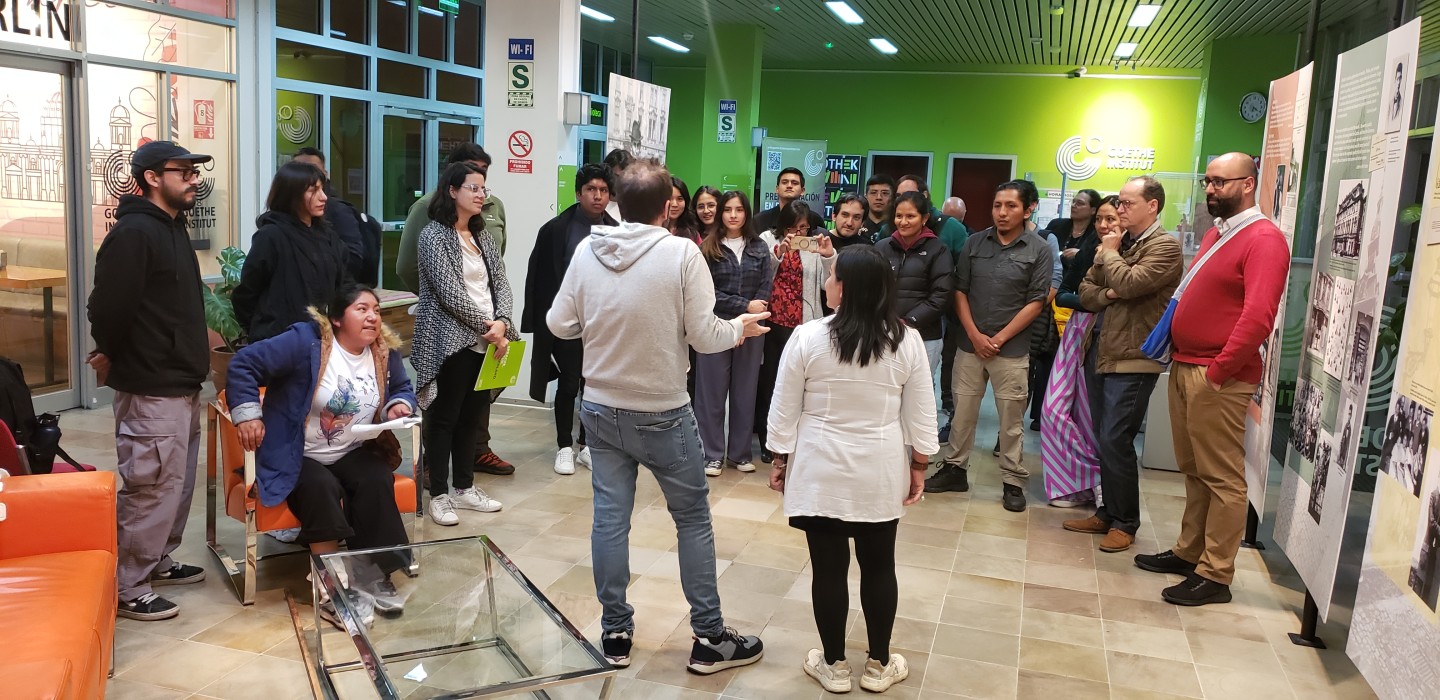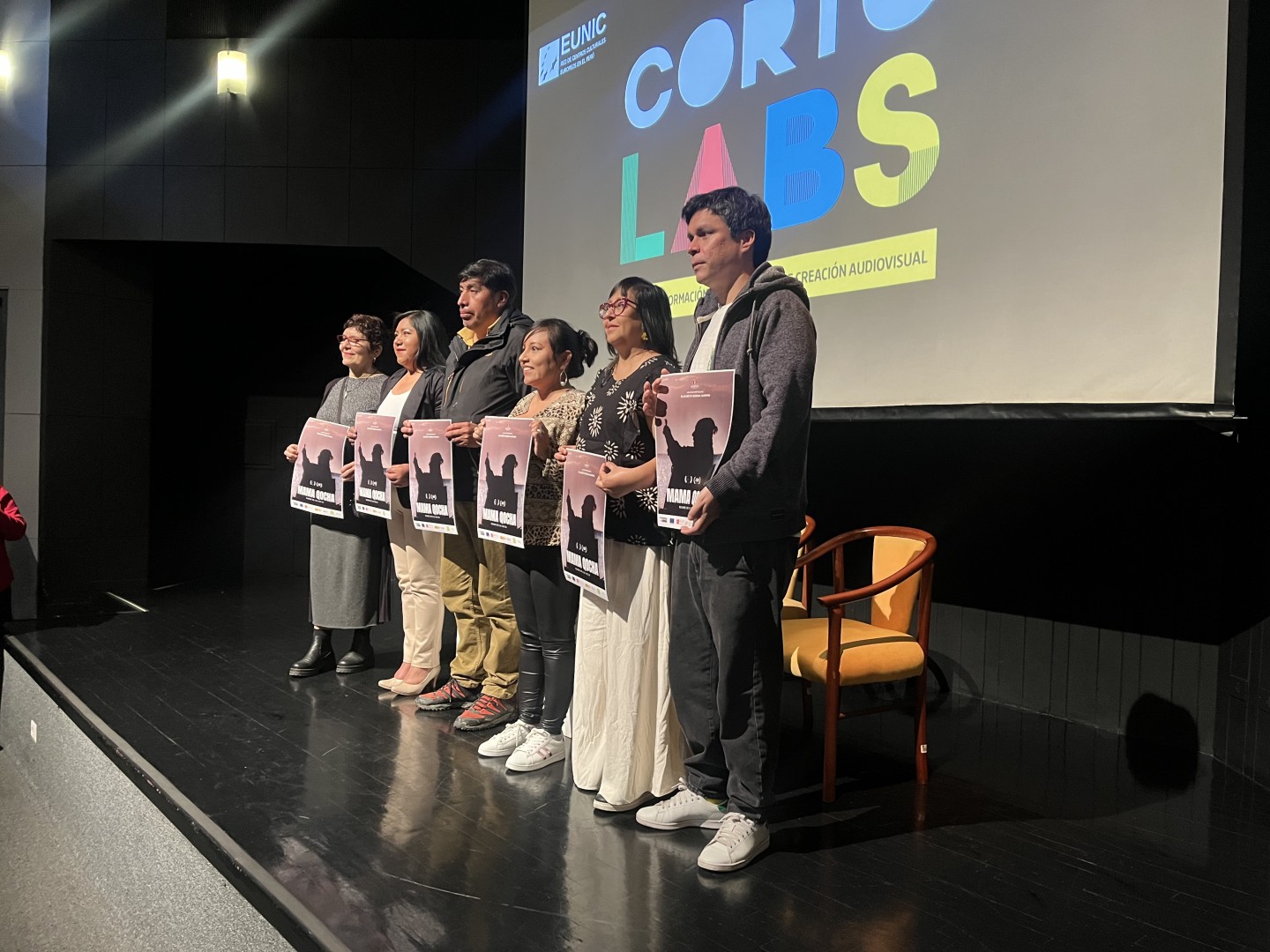Cortolabs, a project by EUNIC Peru, sought to empower collaboration across cultures and to support audiovisual professionals, particularly from underrepresented areas of Peru. The project not only contributed to the growth of Peruvian cinema but also fostered a deeper understanding of climate issues through the lens of film.
With a strong emphasis on the climate crisis and sustainability, the project was designed to achieve multiple objectives. It aimed to reflect on the human impact on the environment and highlight the importance of long-term sustainability. Furthermore, it sought to generate dialogue between European and Peruvian audiovisual professionals, enhance the value of local traditions as a bridge between modernity and sustainability and promote cinema as a powerful tool for collective reflection.
The lab brought together aspiring filmmakers, both students and professionals, from across Peru. Participants applied to the Cortolabs open call with ideas that matched the central theme, allowing for an inclusive, open space for creative development. A total of 10 projects from across the country were selected to take part in the initiative, and one winning team received funding to produce a short film at the end of the programme.
Cortolabs provided participants with both online and in-person support through consultations and workshops. The activities, which spanned over six months, included a series of pre-workshops, live masterclasses and an intensive hands-on creation period.
A dynamic and creative environment
Throughout the course of Cortolabs, participants were guided through various stages of filmmaking, supported by expert facilitators from Europe and Peru.
The workshops covered a wide array of topics, from conceptualisation and scriptwriting to production techniques and distribution strategies. Key figures in the organisation of the workshops included Maga Zevallos, a local curator who also held a masterclass during the programme.
One notable feature of the project was the ongoing exchange between national and international professionals. Collaborators from countries such as France, Germany, Italy, Spain and beyond joined the workshops, ensuring a dynamic and diverse creative environment.
This international dialogue enriched the learning experience, with creatives from different backgrounds sharing their insights and expertise. Cortolabs also provided filmmakers from remote areas of Peru with the opportunity to connect with seasoned professionals and to expand their knowledge and skills.
Cortolabs was a unique workshop experience that gave upcoming filmmakers from many regions in Peru a new vision. It consisted of interventions in all creative steps of cinematography, from research on the topic up to film marketing. Experienced international professionals connected with Peruvian creatives. The winning project of Cortolabs was realised and screened at the European Film Festival in Lima.
Maga Zevallos, curator of Cortolabs
Mama Qocha (La madre de las aguas)
For the winning team, led by director Elizabeth Borda, the opportunity to produce their short film and have it screened at an international festival was a significant milestone. The film, Mama Qocha, went on to be showcased at the European Film Festival in Lima, bringing the project full circle from conception to international recognition.
The impact was evident in the intense emotions elicited by the film’s powerful narrative, which portrayed the desperate struggle of ordinary people against the pollution of Lake Titicaca in the Puno region. This impact was also reflected in the vibrant and extensive discussions that followed the 20-minute short film screening.
Cortolabs ultimately demonstrated the transformative power of collaboration across cultures and borders. By addressing critical issues like sustainability and amplifying underrepresented voices in Peruvian cinema, the project contributed to the growth of a dynamic and inclusive creative community.



